Alexandria Ocasio-Cortez Quotes


Healthcare as a human right, it means that every child, no matter where you are born, should have access to a college or trade-school education if they so choose it, and I think no person should be homeless if we can have public structures and public policy to allow for people to have homes and food and lead a dignified life in the United States.
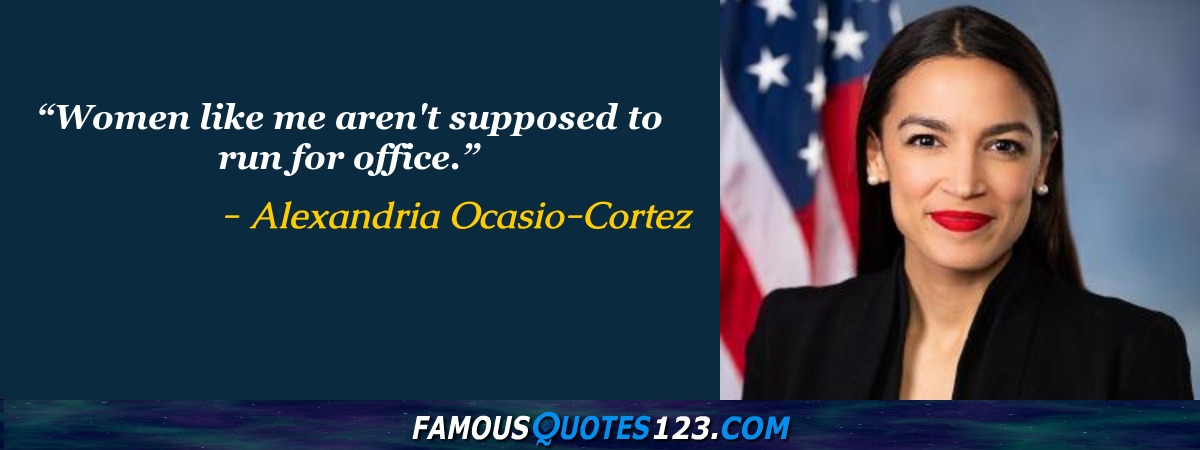
Women like me aren't supposed to run for office.
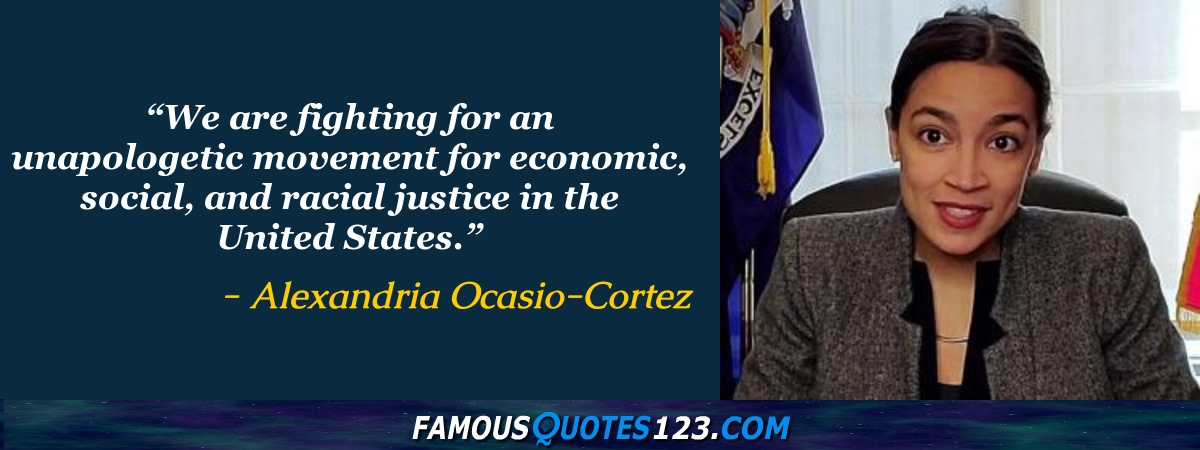
We are fighting for an unapologetic movement for economic, social, and racial justice in the United States.
To me, what socialism means is to guarantee a basic level of dignity. It's asserting the value of saying that the America we want and the America that we are proud of is one in which all children can access a dignified education. It's one in which no person is too poor to have the medicines they need to live.
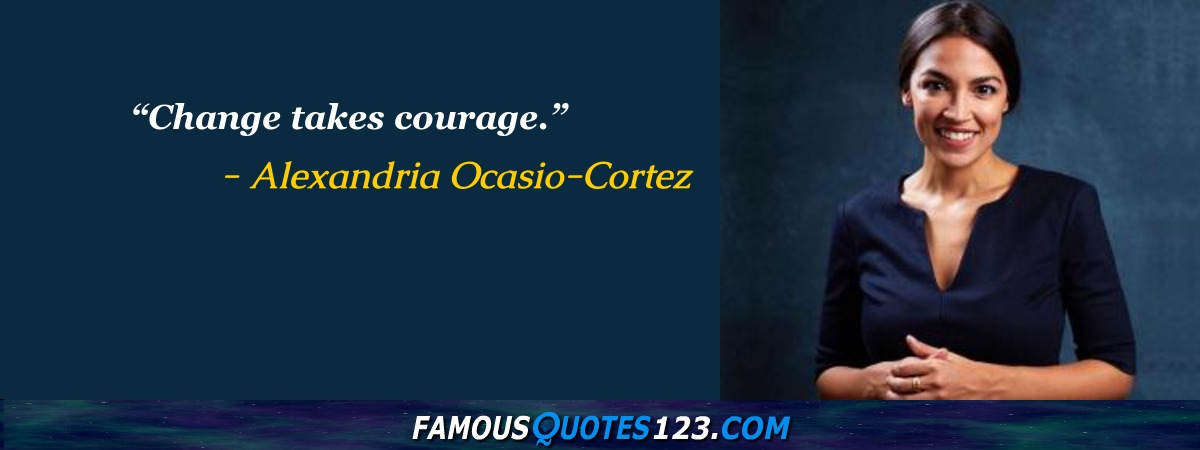
Change takes courage.
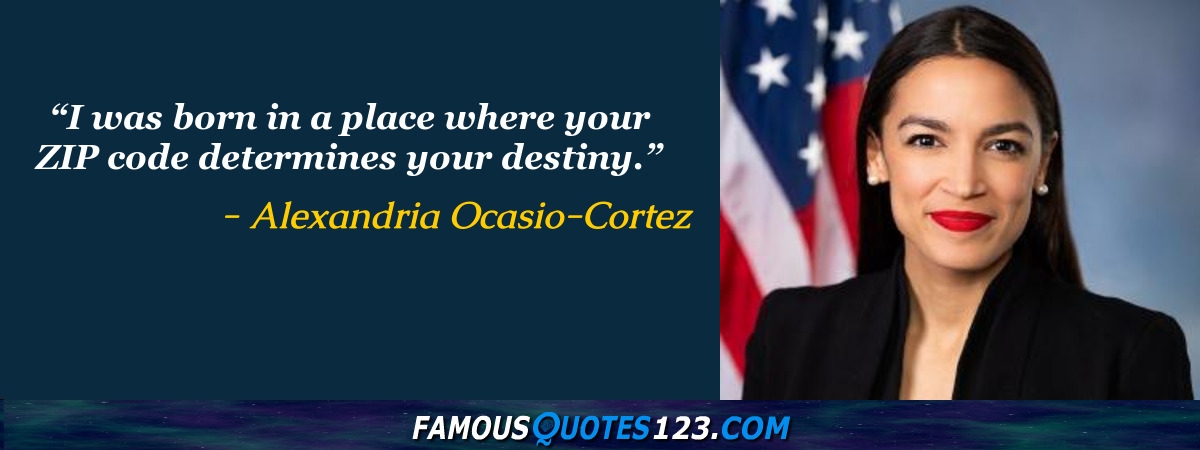
I was born in a place where your ZIP code determines your destiny.
The biggest hurdle that our communities have is cynicism - saying it's a done deal, who cares; there's no point to voting. If we can get somebody to care, it's a huge victory for the movement and the causes we're trying to advance.
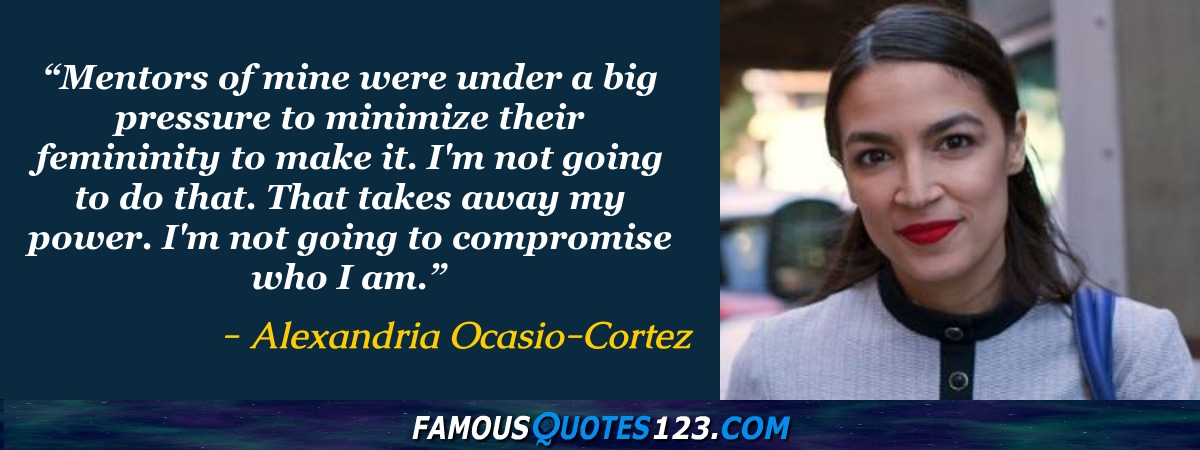
Mentors of mine were under a big pressure to minimize their femininity to make it. I'm not going to do that. That takes away my power. I'm not going to compromise who I am.
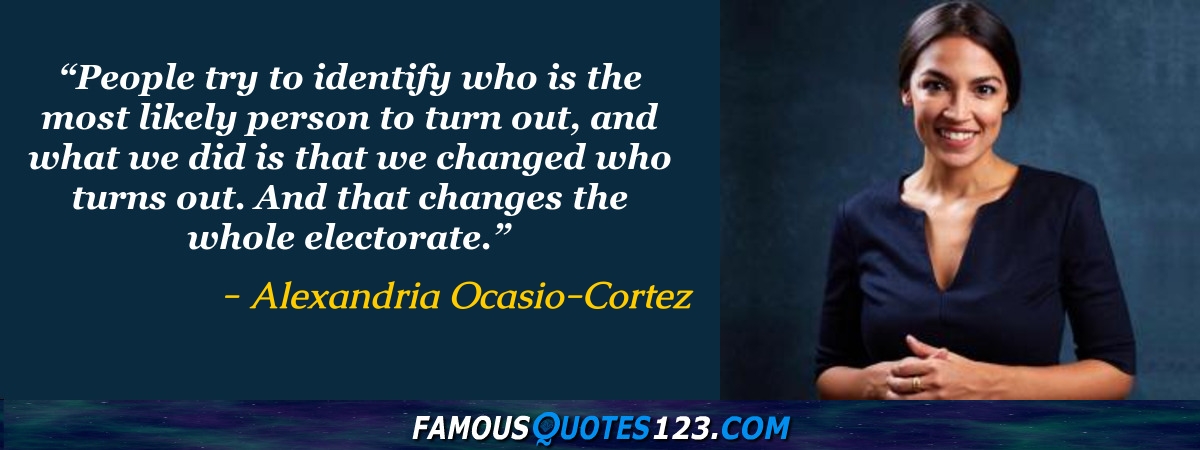
People try to identify who is the most likely person to turn out, and what we did is that we changed who turns out. And that changes the whole electorate.
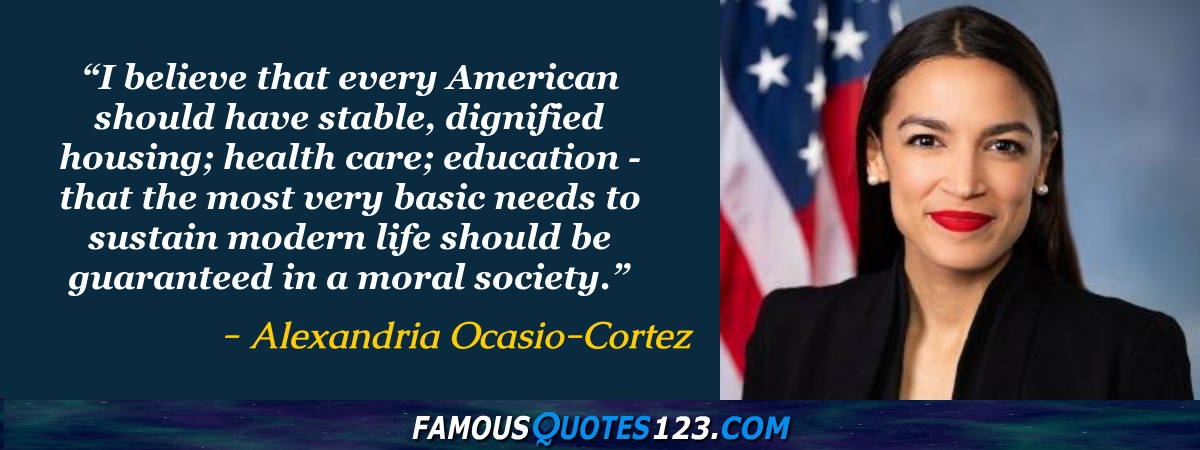
I believe that every American should have stable, dignified housing; health care; education - that the most very basic needs to sustain modern life should be guaranteed in a moral society.
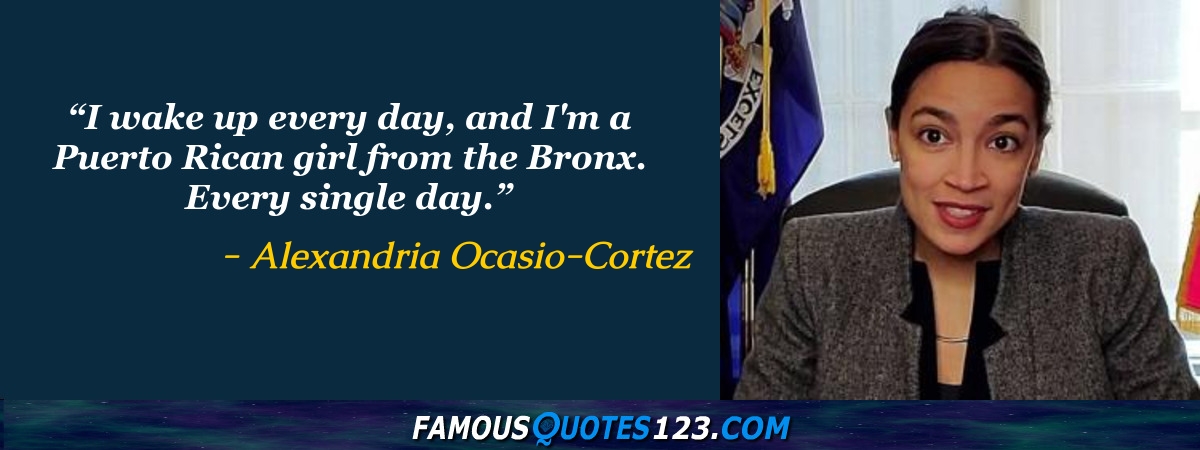
I wake up every day, and I'm a Puerto Rican girl from the Bronx. Every single day.
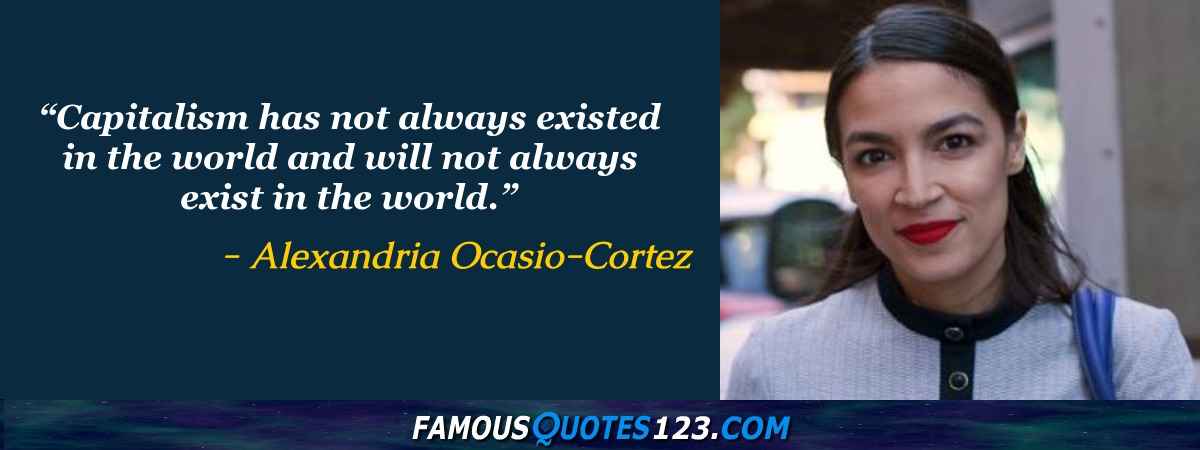
Capitalism has not always existed in the world and will not always exist in the world.
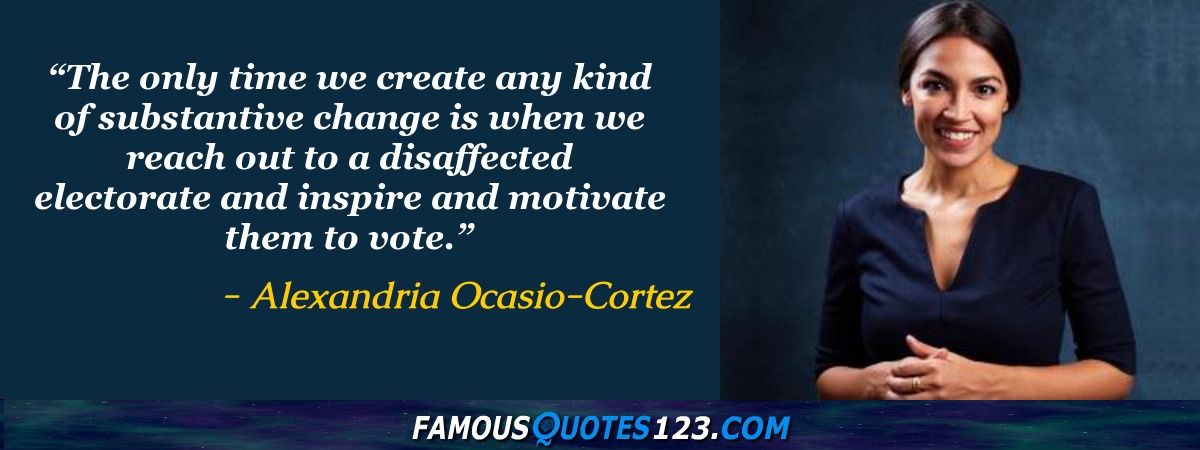
The only time we create any kind of substantive change is when we reach out to a disaffected electorate and inspire and motivate them to vote.
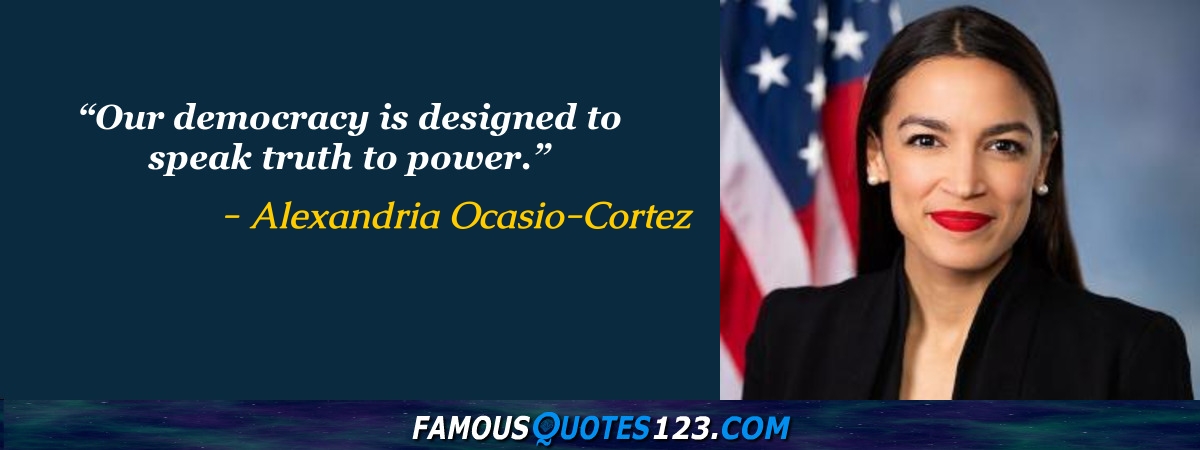
Our democracy is designed to speak truth to power.
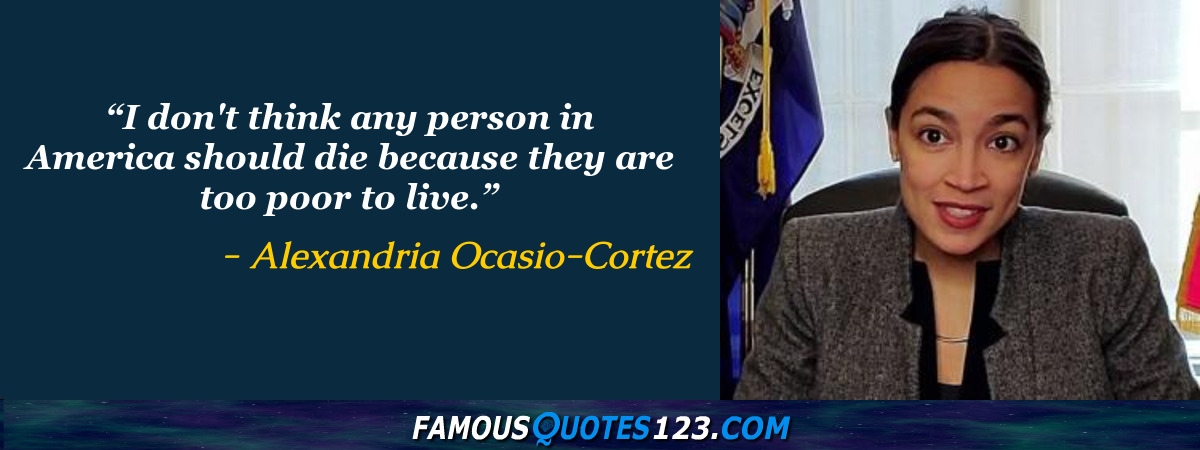
I don't think any person in America should die because they are too poor to live.
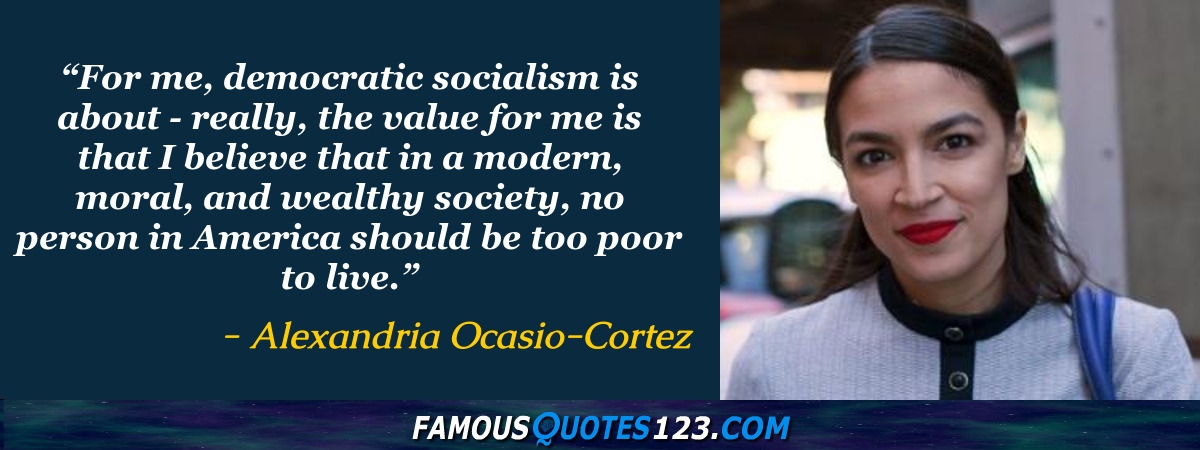
For me, democratic socialism is about - really, the value for me is that I believe that in a modern, moral, and wealthy society, no person in America should be too poor to live.
When we talk about the word 'socialism,' I think what it really means is just democratic participation in our economic dignity and our economic, social, and racial dignity. It is about direct representation and people actually having power and stake over their economic and social wellness, at the end of the day.
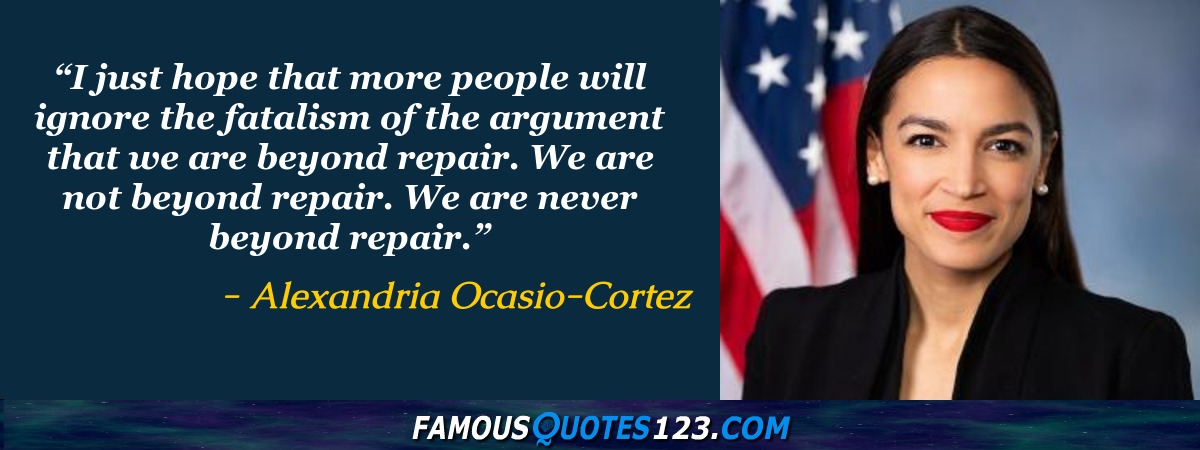
I just hope that more people will ignore the fatalism of the argument that we are beyond repair. We are not beyond repair. We are never beyond repair.
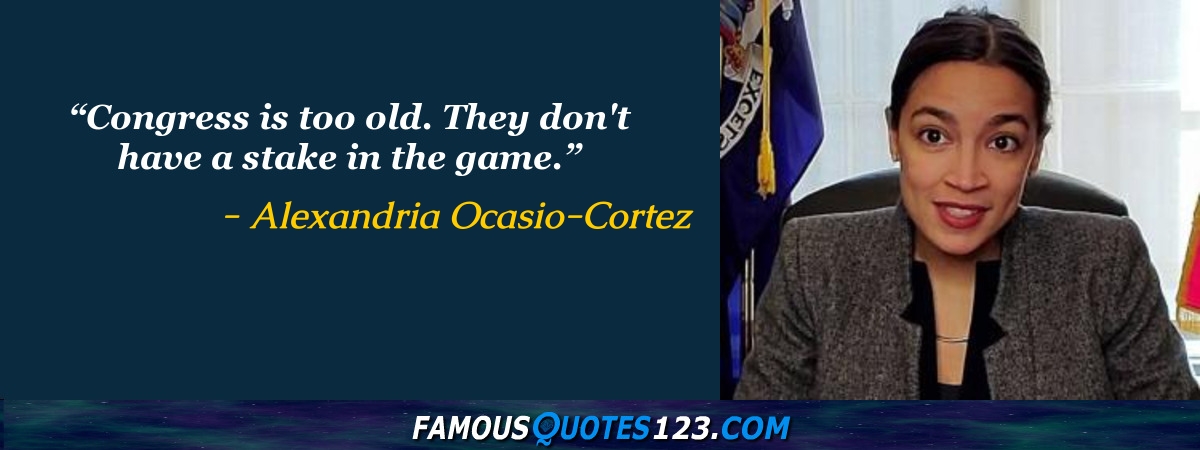
Congress is too old. They don't have a stake in the game.
Before ICE, we had Immigration and Naturalization Services, but it wasn't until about 1999 that we chose to criminalize immigration at all. And then, once ICE was established, we really kind of militarized that enforcement to a degree that was previously unseen in the United States.
There has almost never been a period of substantial economic growth in the United States without significant investment. And no investment pays off within the same cycle. No investment pays off within the same year - especially a governmental investment. Even businesses don't work that way.
I can't name a single issue with roots in race that doesn't have economic implications, and I cannot think of a single economic issue that doesn't have racial implications. The idea that we have to separate them out and choose one is a con.
There's this false notion that you have to separate and choose between issues of class and issues of race. What people do when they say that you need to separate class from race is that they are really just saying that people of color should come second.
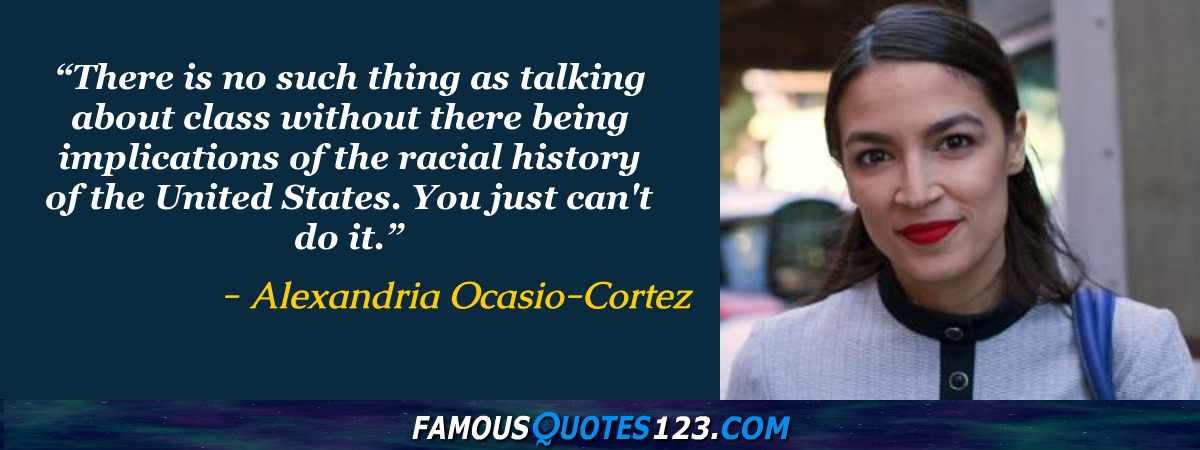
There is no such thing as talking about class without there being implications of the racial history of the United States. You just can't do it.
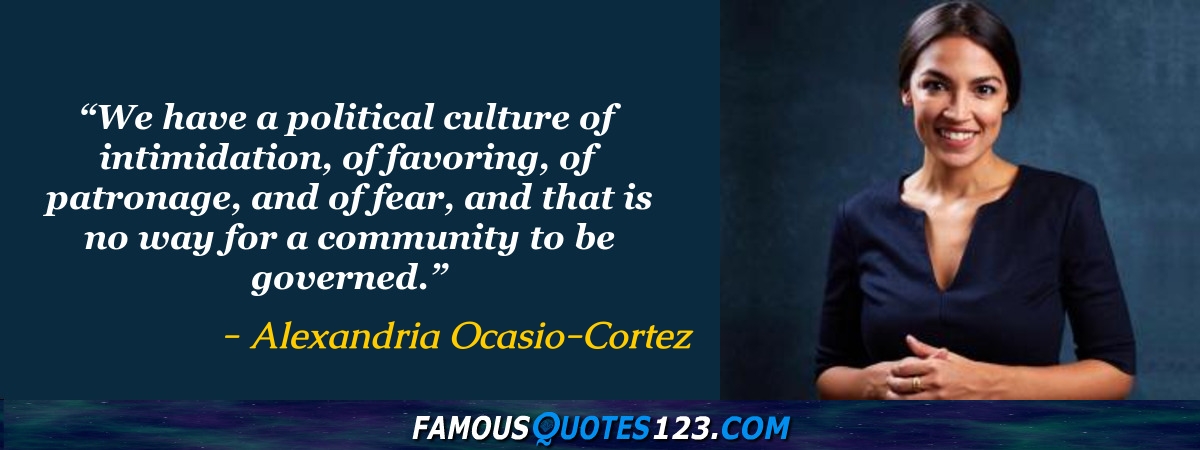
We have a political culture of intimidation, of favoring, of patronage, and of fear, and that is no way for a community to be governed.
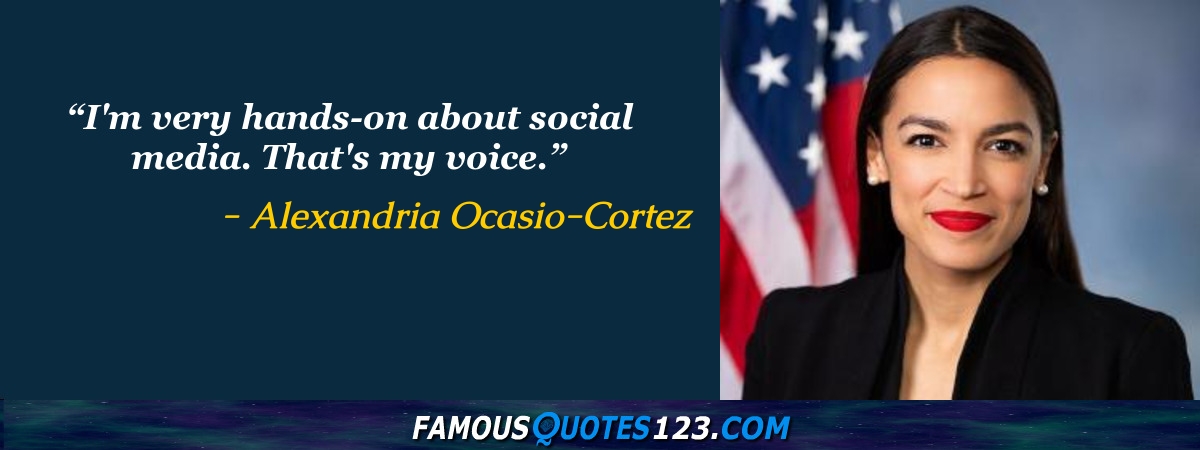
I'm very hands-on about social media. That's my voice.
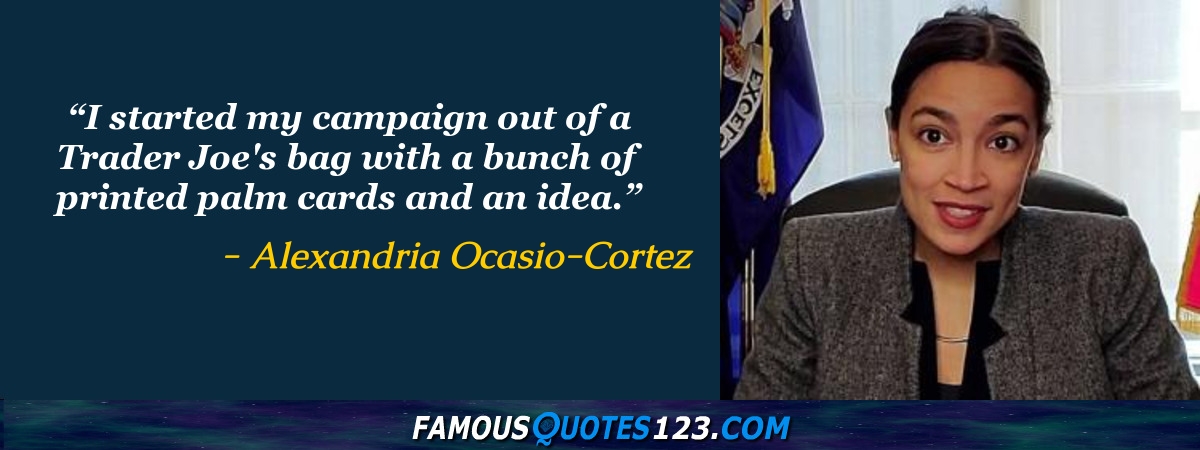
I started my campaign out of a Trader Joe's bag with a bunch of printed palm cards and an idea.
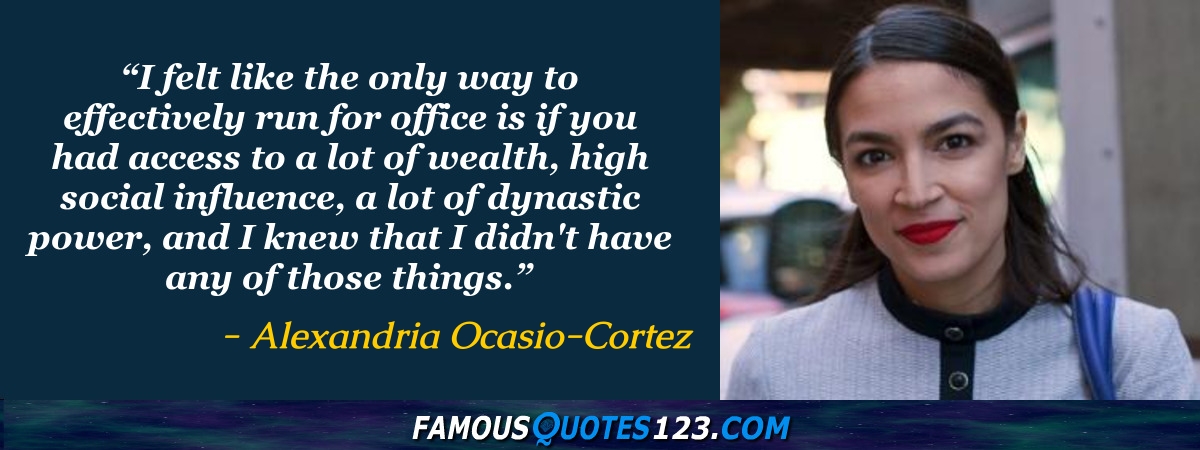
I felt like the only way to effectively run for office is if you had access to a lot of wealth, high social influence, a lot of dynastic power, and I knew that I didn't have any of those things.
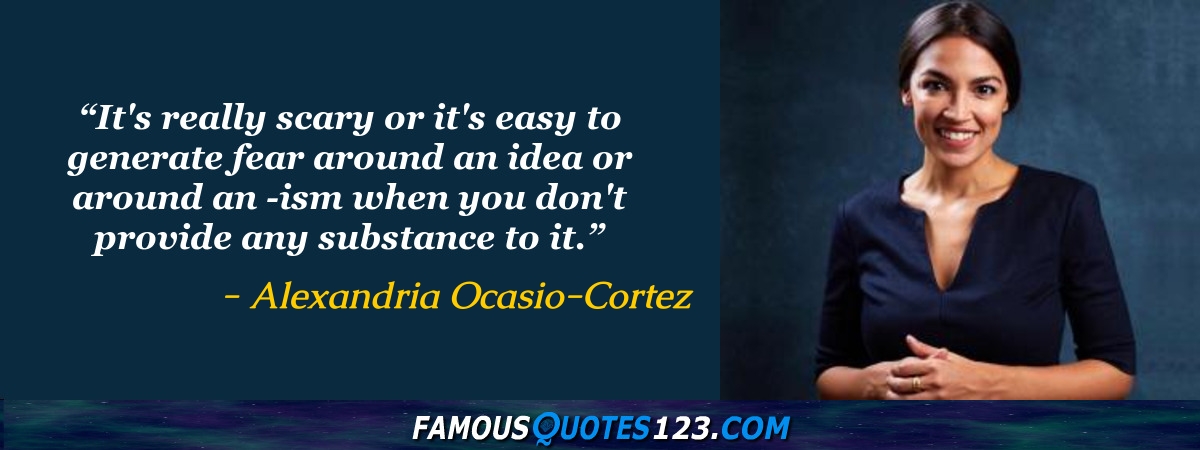
It's really scary or it's easy to generate fear around an idea or around an -ism when you don't provide any substance to it.
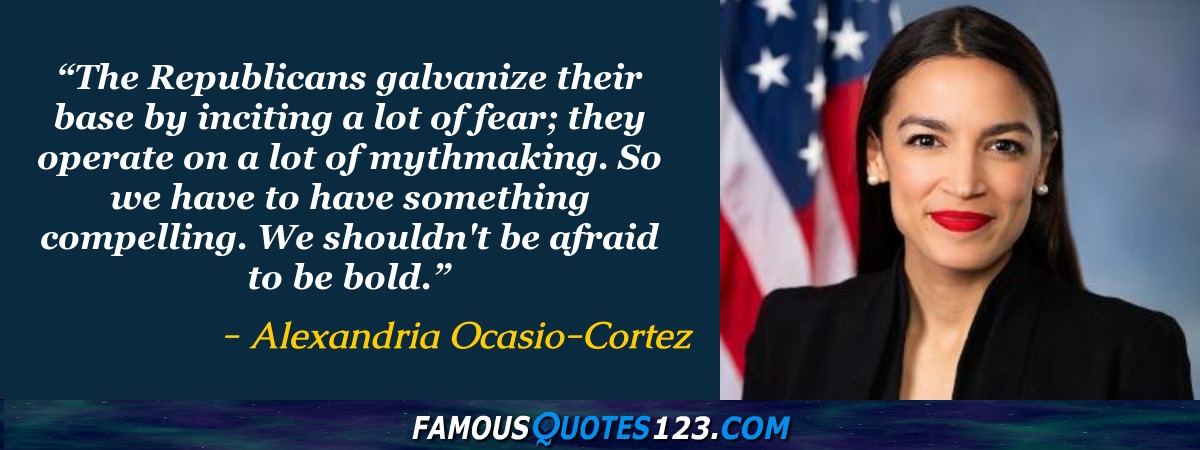
The Republicans galvanize their base by inciting a lot of fear; they operate on a lot of mythmaking. So we have to have something compelling. We shouldn't be afraid to be bold.
The Green New Deal we are proposing will be similar in scale to the mobilization efforts seen in World War II or the Marshall Plan. We must again invest in the development, manufacturing, deployment, and distribution of energy, but this time green energy.
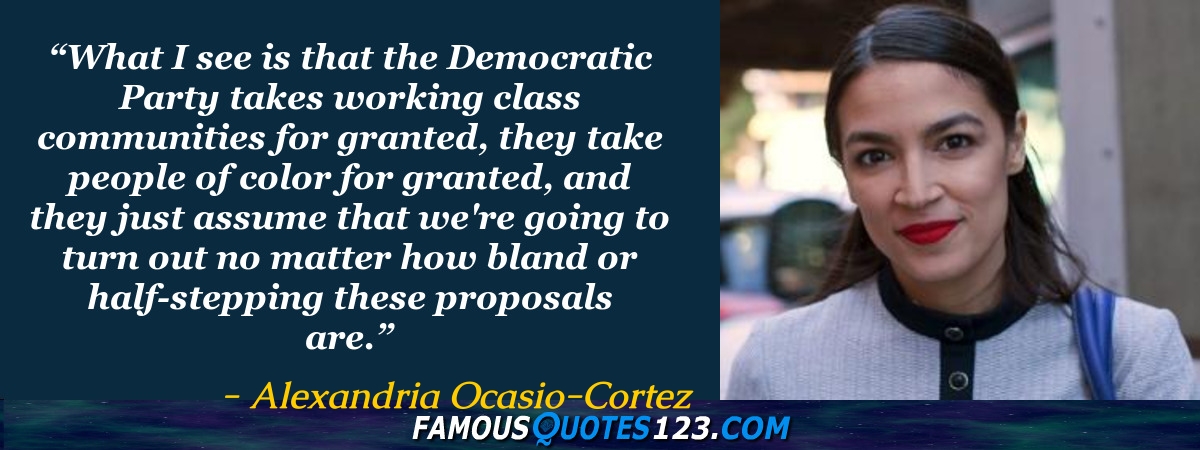
What I see is that the Democratic Party takes working class communities for granted, they take people of color for granted, and they just assume that we're going to turn out no matter how bland or half-stepping these proposals are.
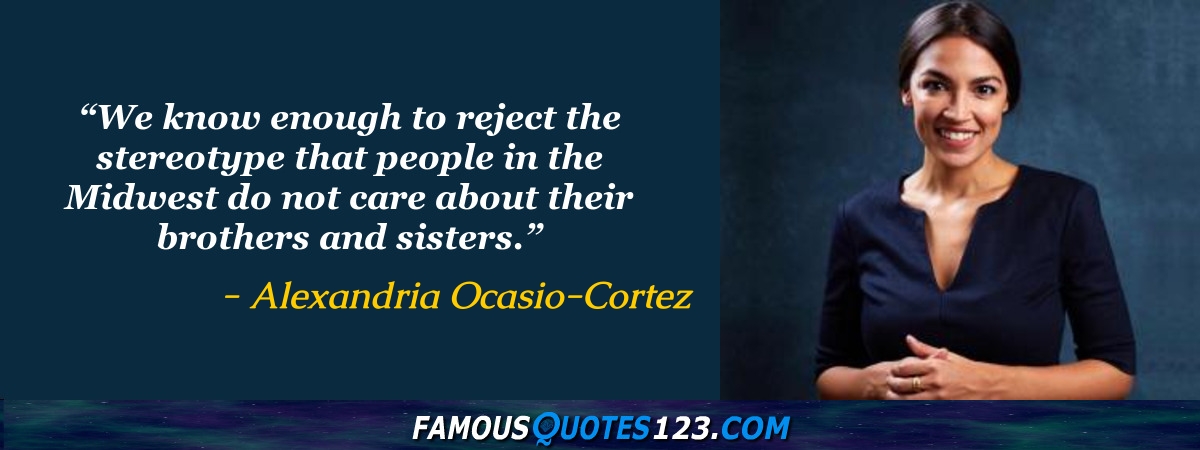
We know enough to reject the stereotype that people in the Midwest do not care about their brothers and sisters.
If you're differently-abled, if you're a person of color, if you express your identity in a way that's different from the norm, for whatever reason, there's an implicit bias where people, frankly, sometimes take you less seriously.
We absolutely do need to make sure that our borders are secure. But what we need to realize and remember is that ICE was established in 2003 right at the same time as the Patriot Act, the AUMF, the Iraq War - and we look back at a lot of that time and legislation as a mistake now. And I think that ICE is right there as a part of it.
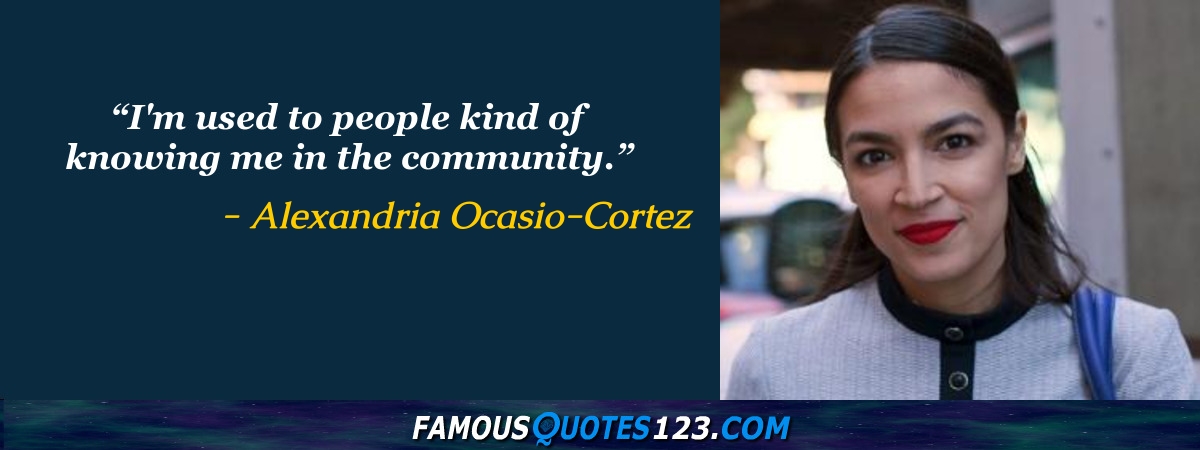
I'm used to people kind of knowing me in the community.
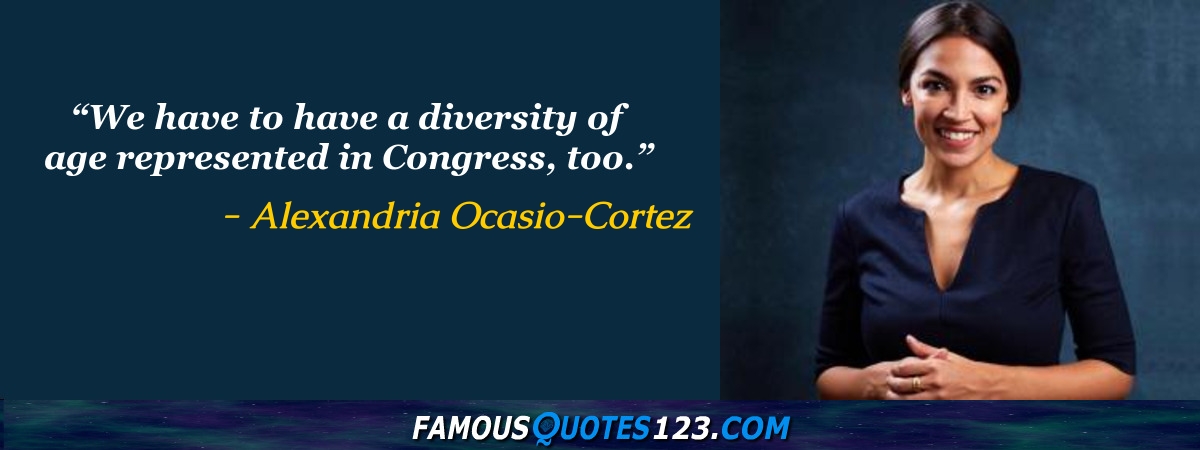
We have to have a diversity of age represented in Congress, too.
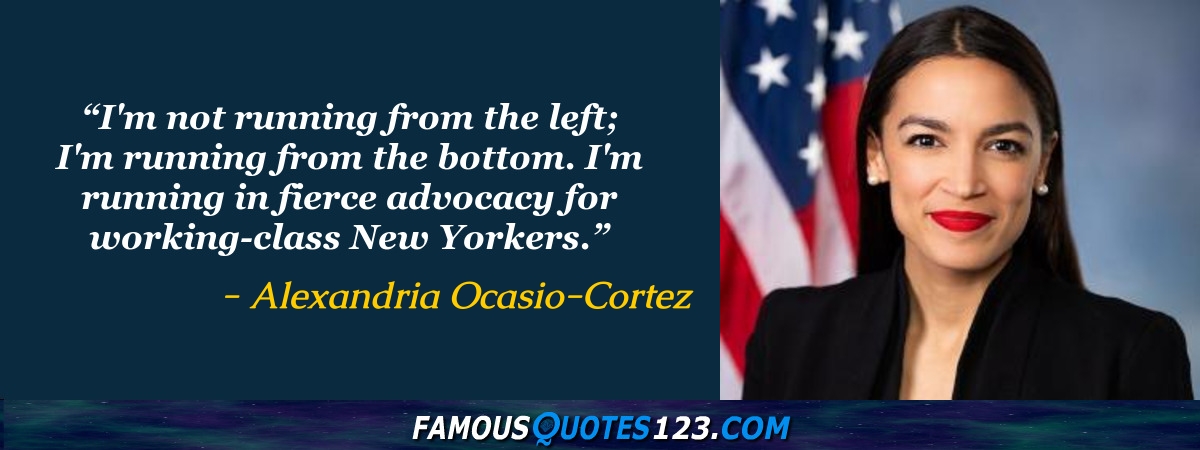
I'm not running from the left; I'm running from the bottom. I'm running in fierce advocacy for working-class New Yorkers.
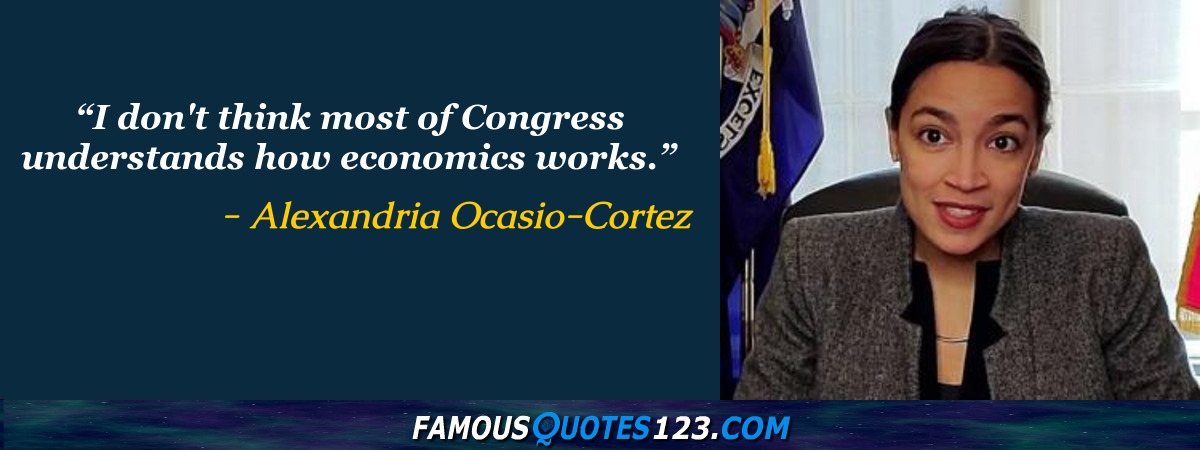
I don't think most of Congress understands how economics works.
At Standing Rock, we experienced, first-hand, people coming together in their communities and trying to use the levers of representative democracy to try and say, 'We don't want this in our community; we don't want this in our backyard,' and corporations using their monetary influence to completely erode that process.
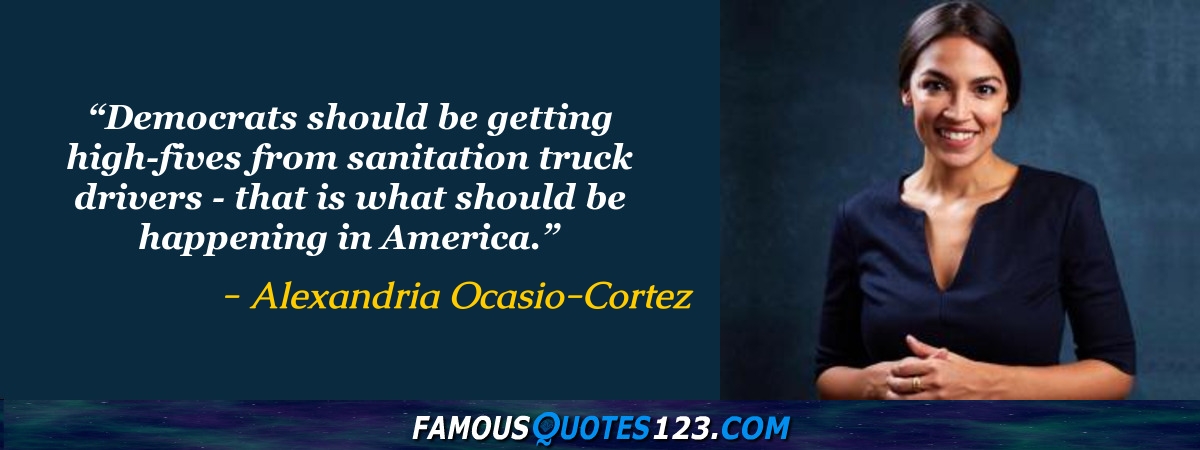
Democrats should be getting high-fives from sanitation truck drivers - that is what should be happening in America.
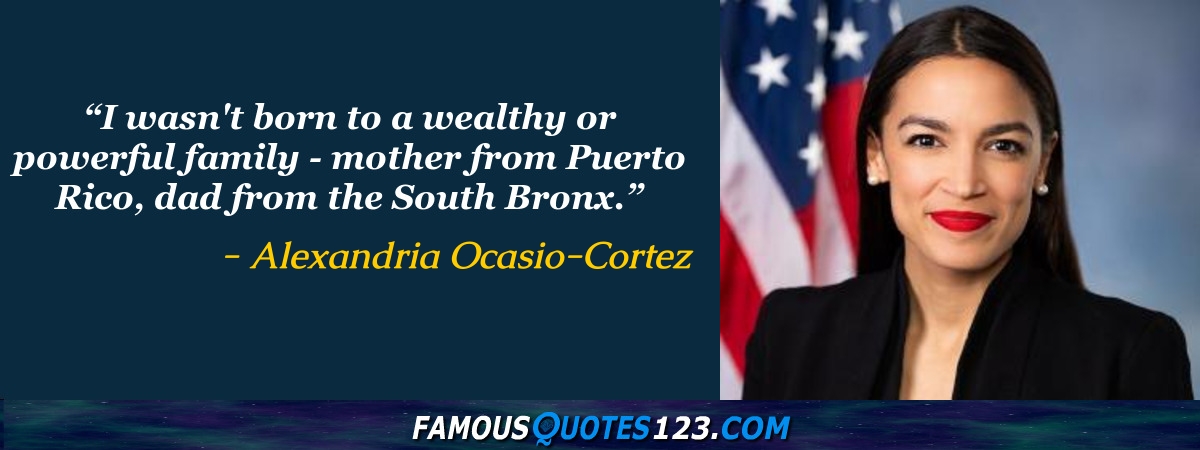
I wasn't born to a wealthy or powerful family - mother from Puerto Rico, dad from the South Bronx.
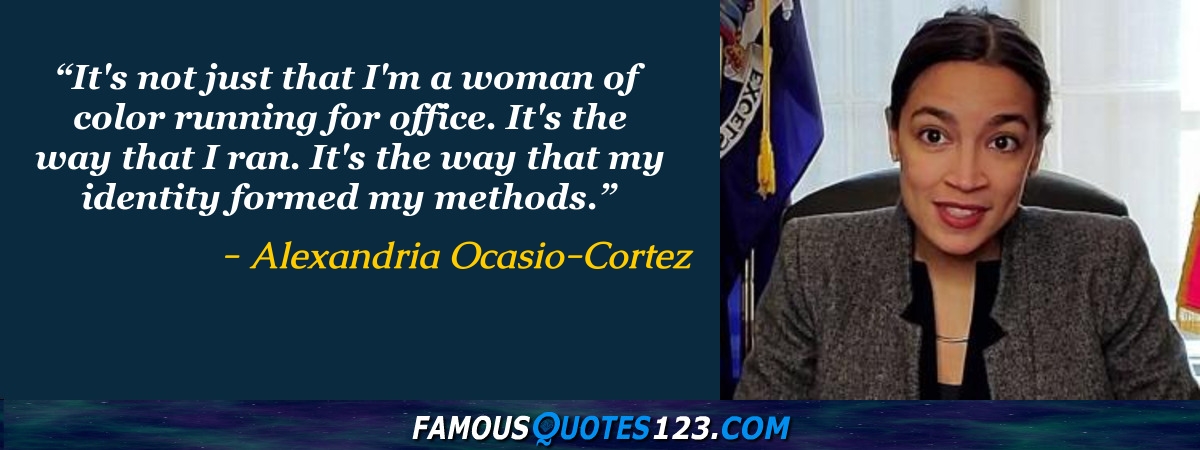
It's not just that I'm a woman of color running for office. It's the way that I ran. It's the way that my identity formed my methods.
The idea that we're going to austerity ourselves into prosperity is so mistaken, and honestly, I feel like one of the big problems we have is that, because Democrats don't have a deep understanding of or degrees in economics, they allow Wall Street folks to roll in the door and think that they're giving them an education.
It's time we acknowledge that not all Democrats are the same. That a Democrat who takes corporate money, profits off foreclosure, doesn't live here, doesn't send his kids to our schools, doesn't drink our water or breathe our air cannot possibly represent us.
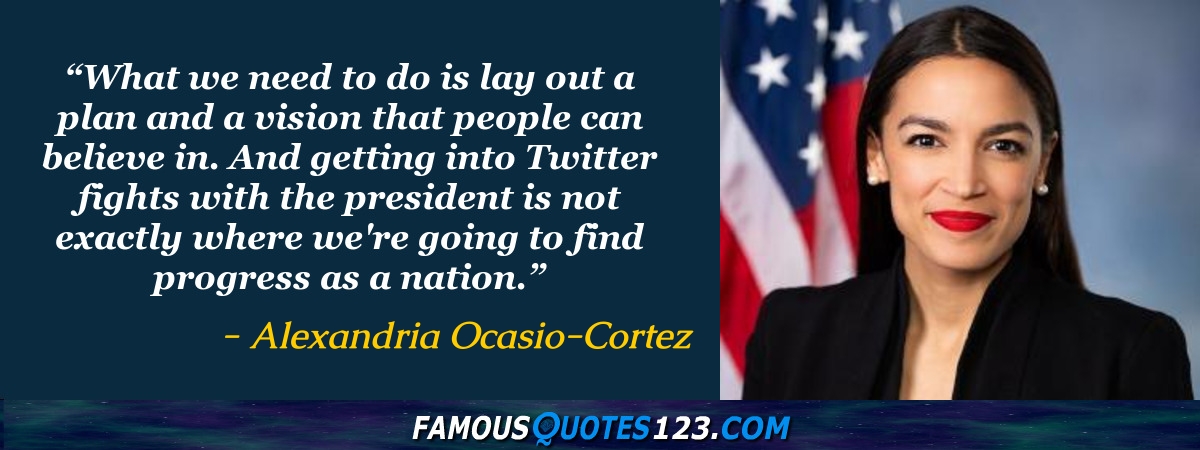
What we need to do is lay out a plan and a vision that people can believe in. And getting into Twitter fights with the president is not exactly where we're going to find progress as a nation.
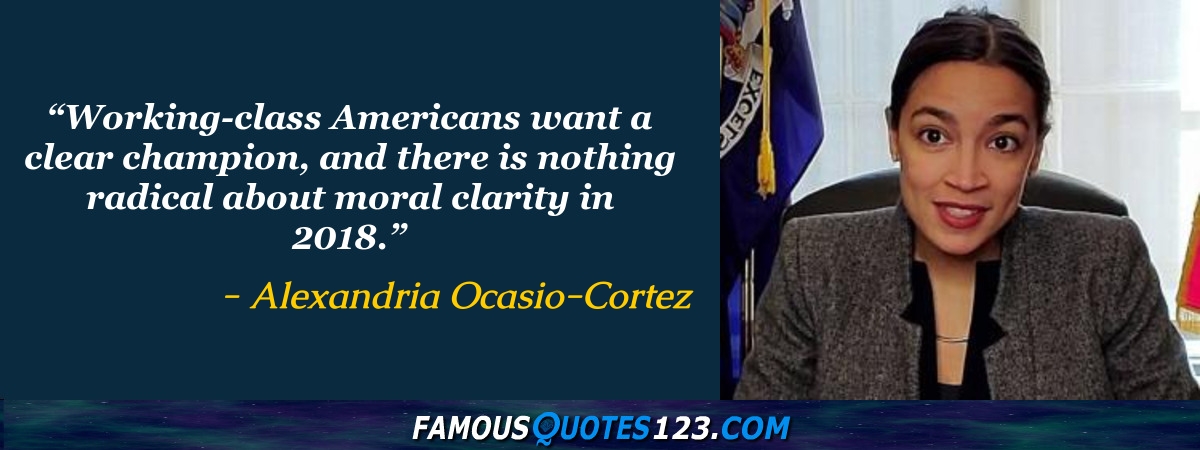
Working-class Americans want a clear champion, and there is nothing radical about moral clarity in 2018.
I think there's a weapon of cynicism to say, 'Protest doesn't work. Organizing doesn't work. Y'all are a bunch of hippies. You know, it doesn't do anything,' because, frankly, it's said out of fear, because it is a potent force for political change.
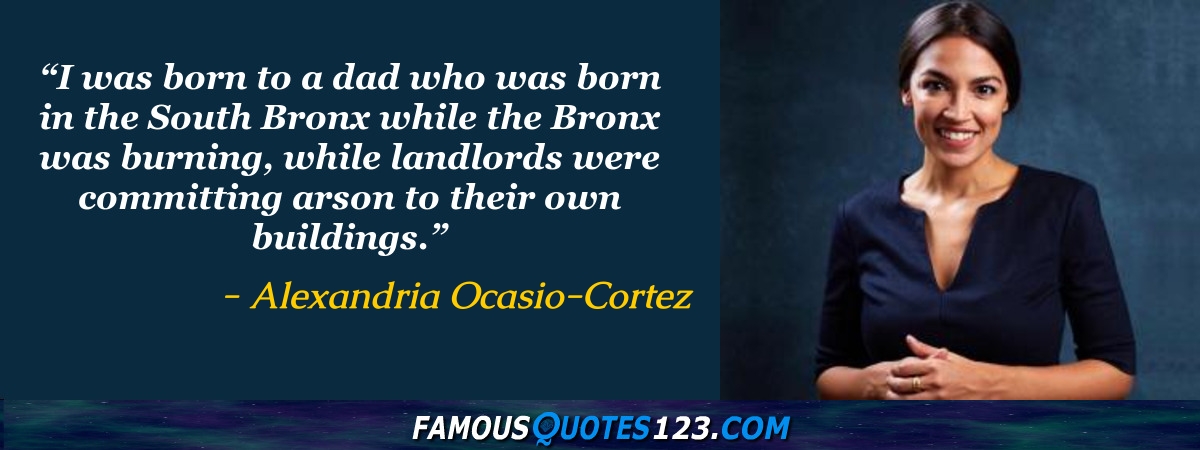
I was born to a dad who was born in the South Bronx while the Bronx was burning, while landlords were committing arson to their own buildings.
Nobody ever wins the first time they run for office. Nobody's ever supposed to win their first bid for office. Nobody's ever supposed to win without taking lobbyists' money. No one's ever supposed to defeat an incumbent. No one's ever supposed to run a grassroots campaign without running any ads on television. We did all of those things.
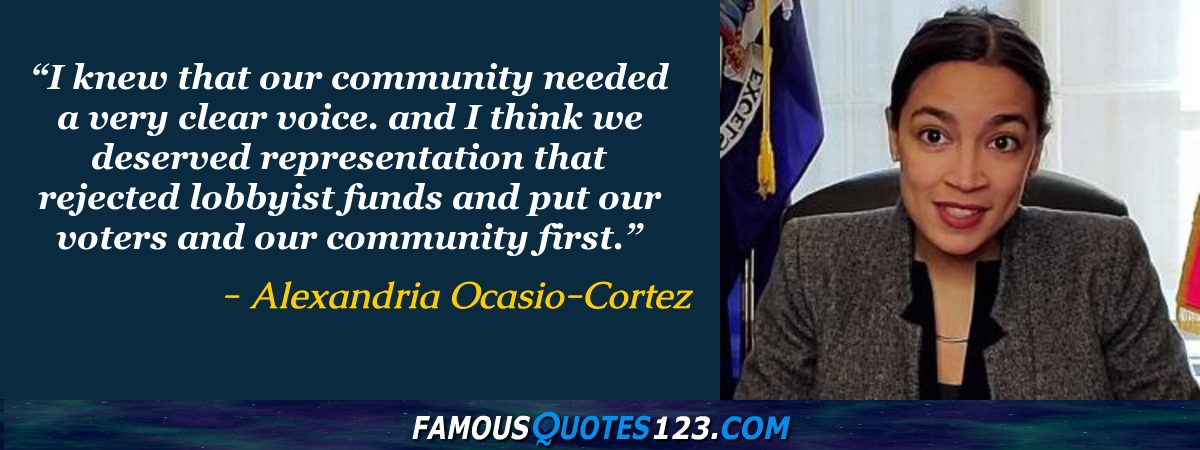
I knew that our community needed a very clear voice. and I think we deserved representation that rejected lobbyist funds and put our voters and our community first.
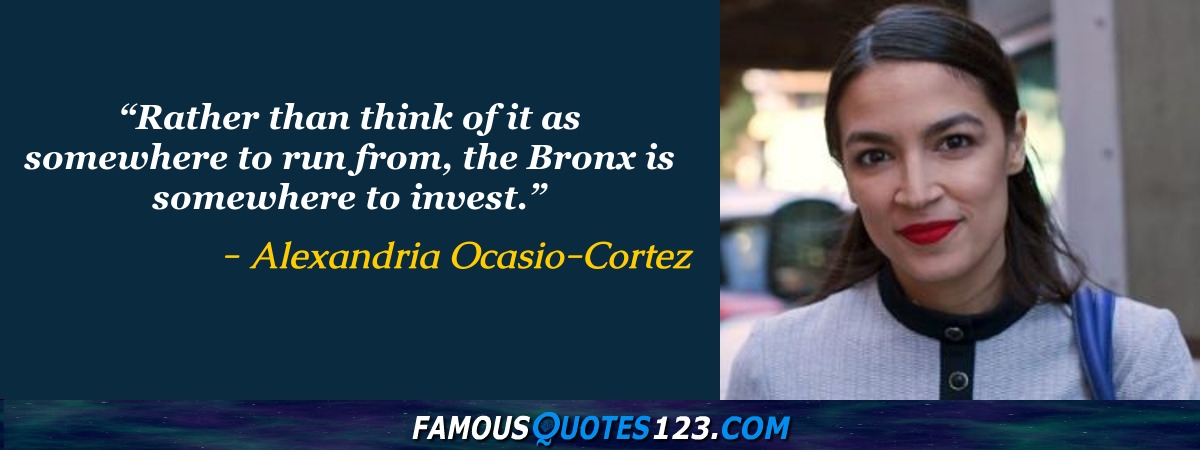
Rather than think of it as somewhere to run from, the Bronx is somewhere to invest.
I was nominated at first by a group called Justice Democrats. They were trying to essentially field non-corporate candidates in the 2018 midterm election. They were looking for people with a history of community service, and my name had come across their desk, and they called.
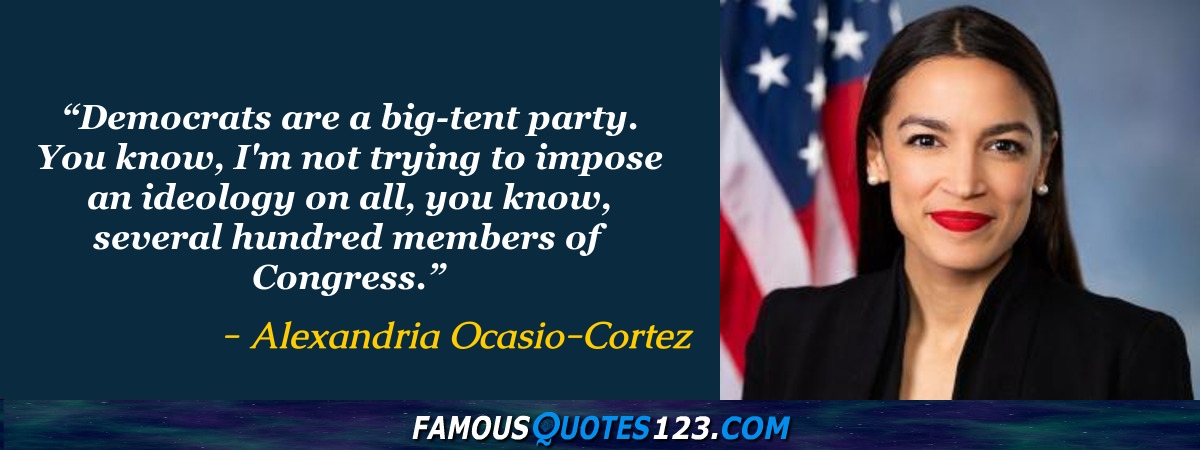
Democrats are a big-tent party. You know, I'm not trying to impose an ideology on all, you know, several hundred members of Congress.
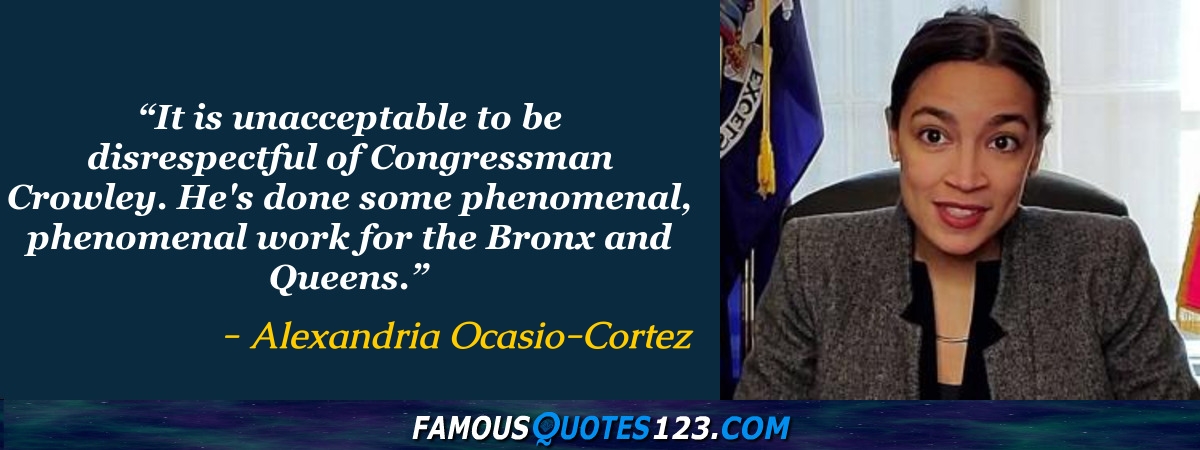
It is unacceptable to be disrespectful of Congressman Crowley. He's done some phenomenal, phenomenal work for the Bronx and Queens.

Public schools in the late '80s and early '90s were a total mess... we felt that if I was going to have a good educational option in my life, I would have to go to a public school district that actually served its children.
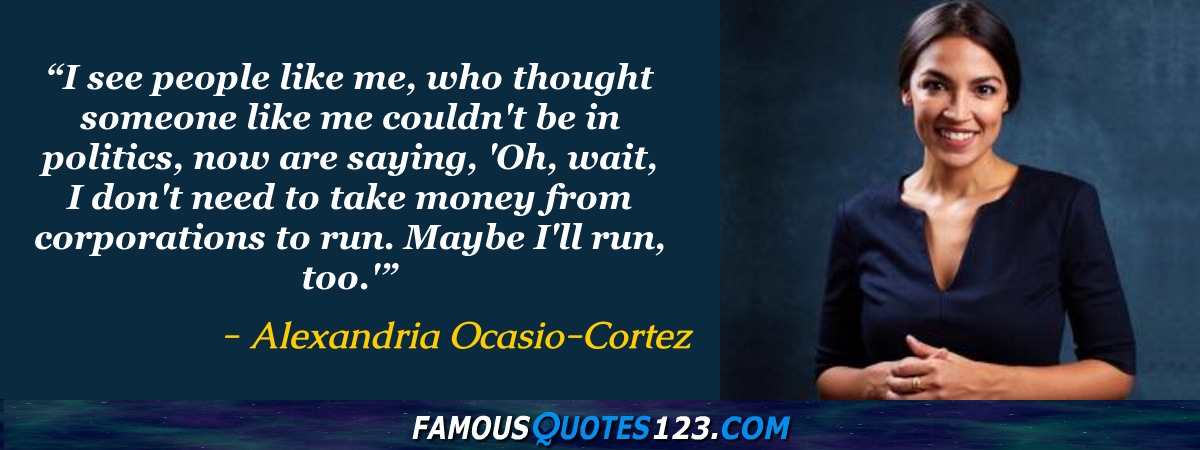
I see people like me, who thought someone like me couldn't be in politics, now are saying, 'Oh, wait, I don't need to take money from corporations to run. Maybe I'll run, too.'
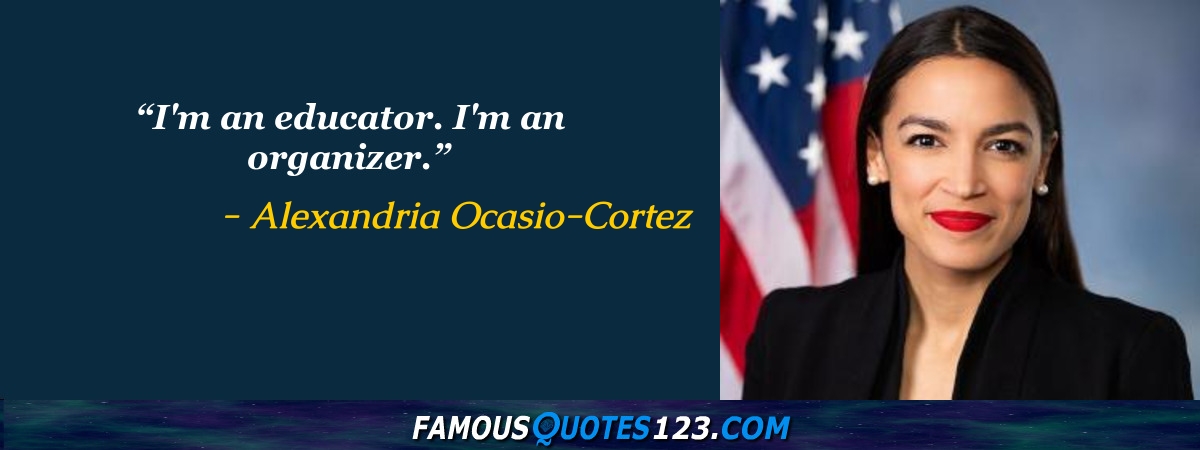
I'm an educator. I'm an organizer.
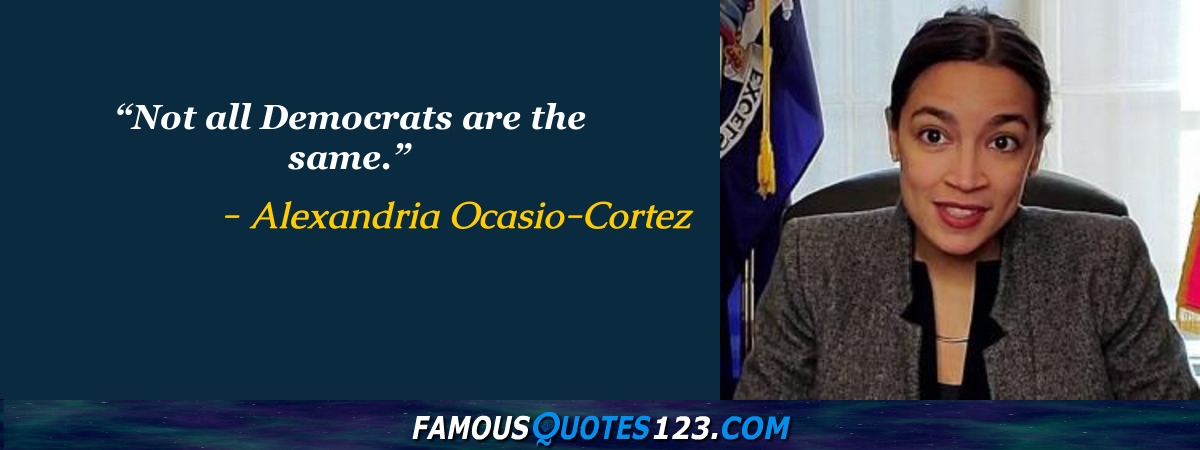
Not all Democrats are the same.
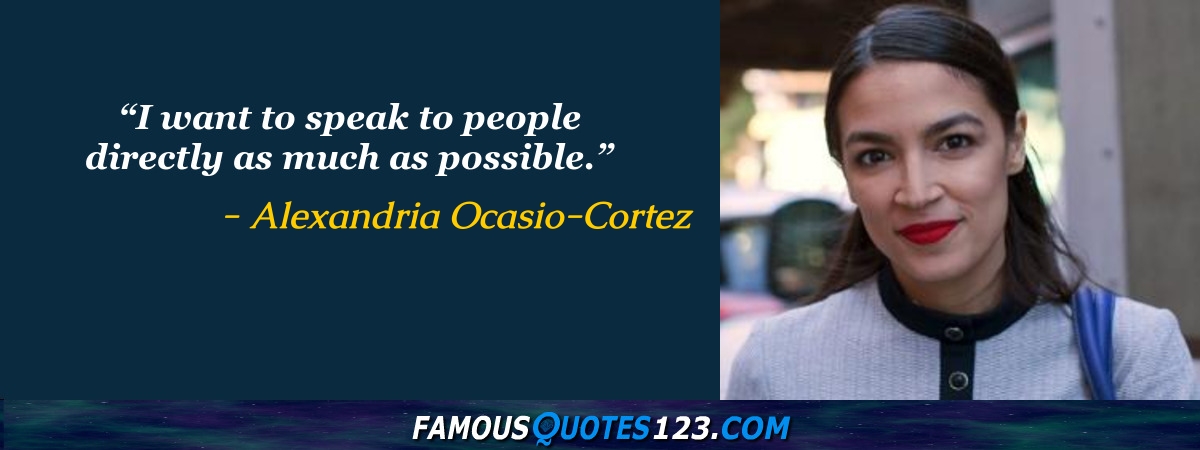
I want to speak to people directly as much as possible.
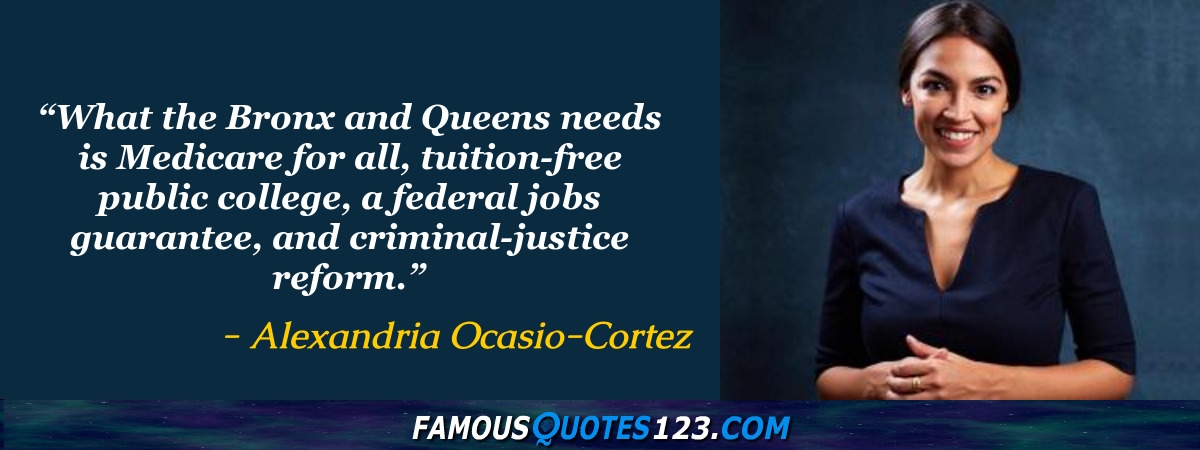
What the Bronx and Queens needs is Medicare for all, tuition-free public college, a federal jobs guarantee, and criminal-justice reform.

I think - I do think that we have to have a secure border. We need to make sure that people are, in fact, documented. But that doesn't mean that we threaten people's lives.

Campaigns are so much more expensive than people think they are. Just to keep the lights on is several thousand dollars a month.

It's disingenuous to... pretend the sources of our money don't impact the policy we write - you just can't serve two masters.

I know what it's like to access the privilege of a ZIP Code but also be born in one that could have destined me to something else.
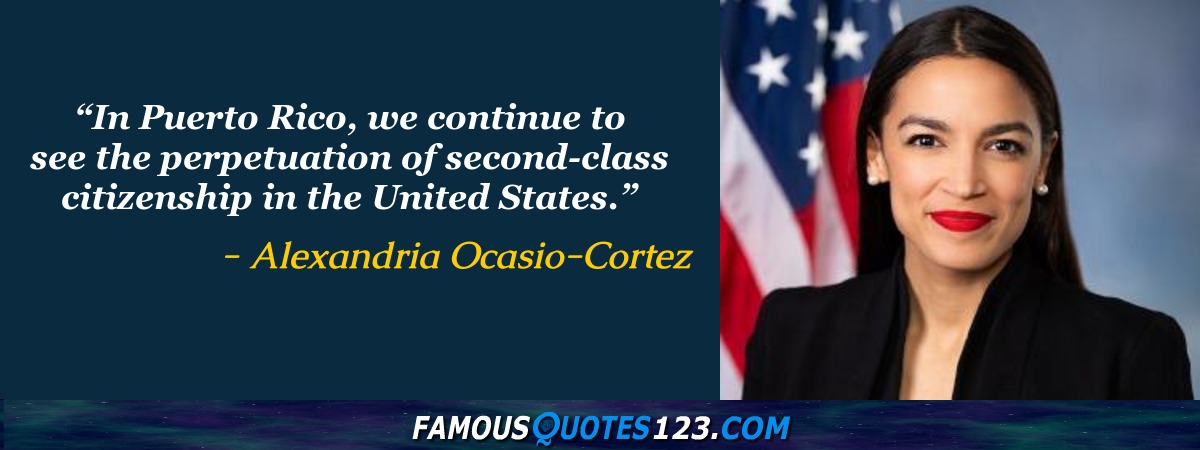
In Puerto Rico, we continue to see the perpetuation of second-class citizenship in the United States.

I understand the pain of working-class Americans because I have experienced the pain.

I don't like having people do little things for me.
I do think that sometimes, especially coming into this going straight from activism to being a candidate or to being a person who potentially, you know, looks like will be holding political office soon, I think we expect our politicians to be perfect and fully formed and on point on every single issue.
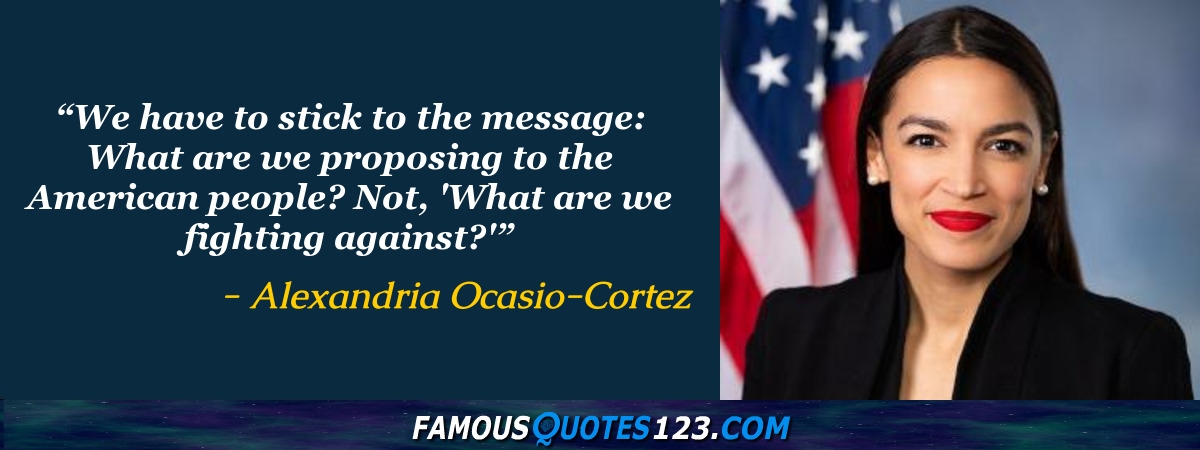
We have to stick to the message: What are we proposing to the American people? Not, 'What are we fighting against?'
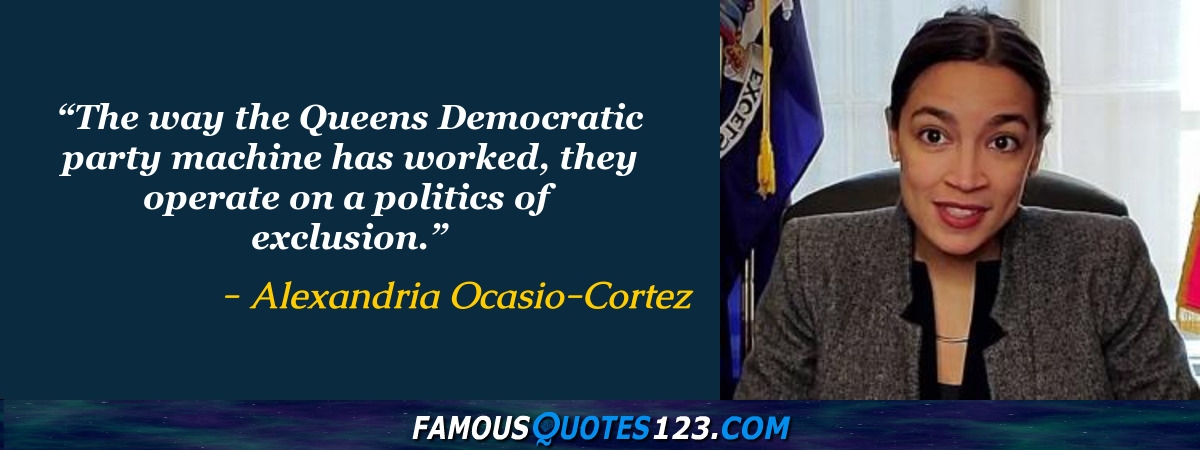
The way the Queens Democratic party machine has worked, they operate on a politics of exclusion.
In terms of closing Rikers, we have to close Rikers, but we have to ensure that we're not just taking - that we're not continuing to incarcerate the same level of people. It doesn't do us much good if we close Rikers and then take that same amount of people and just distribute them to be incarcerated elsewhere.

My mother cleaned homes and drove school buses, and when my family was on the brink of foreclosure... I started bartending and waitressing.

When people feel like they are being spoken directly to, I do feel like... they'll do things like turn out in an off-year, mid-year primary.
It was really my experience at Standing Rock that was pretty pivotal for me because I saw how corporations were literally militarizing themselves against American citizens so that they could kind of maximize their profit margins on fossil fuels.